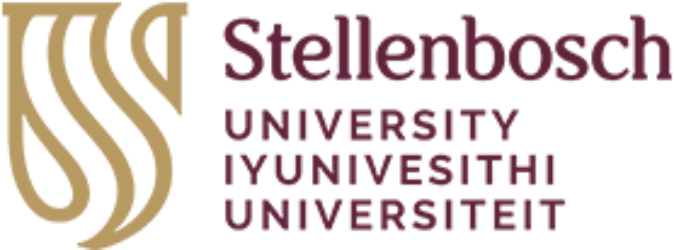Exciting new developments are on their way at the Library. They include a refurbishment of the Stellenbosch University (SU) Library, the opening of a makerspace and a new data visualisation service.
When the SU Library (previously known as the JS Gericke Library) opened its doors in 1984, it was a state-of-the-art library. Visitors were greeted by rows of card catalogues and the circulation desk was a hive of activity involving the issuing and returning of books, all supported by manual systems. Since then, libraries have undergone vast changes: our processes have been automated, most of our resources are now available in electronic format and electronic access systems have become the norm. Since that time, incremental changes have been made to meet the needs of a new generation of students and to accommodate developing technologies. The building soon became more than a traditional library and a masterplan was developed for its redesign and refurbishment. For example, in recent years some library spaces were transformed into a learning commons, a research commons and new staff spaces. We are delighted to announce that we are now entering the next phase of our refurbishment plan and that users of the SU Library can look forward to the renovation of the upper level of the Library. The entrance, circulation and computer areas, areas for collaborative learning, the security area and the ablution facilities will receive a face-lift befitting a modern academic library. Planning for the refurbishment will be finalised in the second semester of 2020. Here is what you can look forward to:
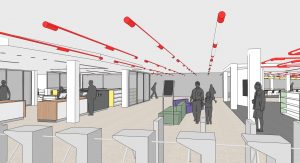
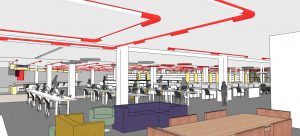
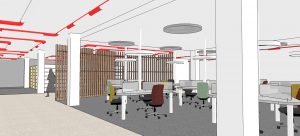
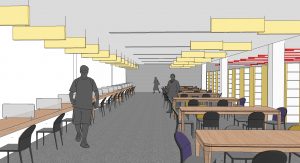
Architect’s drawings of some of the refurbished areas in the SU Library
Students’ learning will be further enhanced with the opening of a makerspace and the provision of a data visualisation service. The makerspace service will open in the SU Library in the second semester. Designed to support research creativity and innovation, it will draw together students who have ideas and those with the technical skills to turn those ideas into reality. The Fourth Industrial Revolution is the context for providing this service. The appealing space will enable students to unlock their creative potential along with that of new technologies. Three-D printing and scanning, electronics and 3D design software will be some of the latest technology available.
The data visualisation service will support research analysis and visualisation. Students and researchers across all disciplines will be introduced to aspects of data visualisation. Visual data literacy training will be provided. The service will be in a dedicated environment, with expert consultancy services and specialist equipment on hand.
